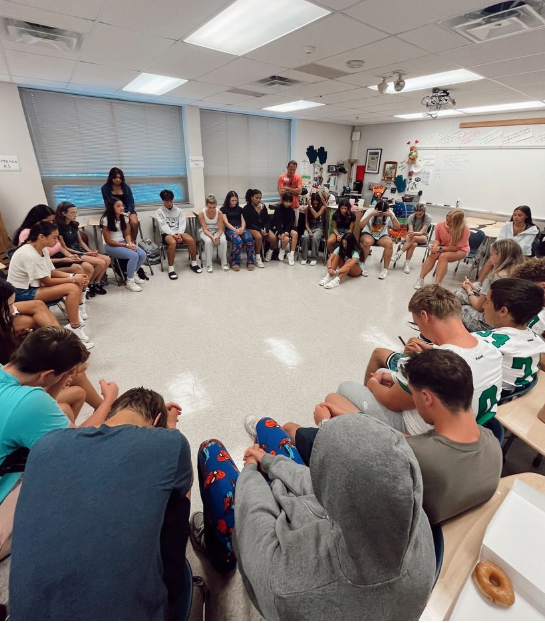According to the National Sleep Foundation, teenagers aged 10 through 17 need 8 ½ to 9 ¼ hours of sleep each night to perform optimally.
Teens sleep an average of 6 ¾ hours on school nights.
“I usually sleep somewhere around six hours a night on school nights,” said sophomore Hannah Becker.
Adequate sleep is essential for learning, memory, and brain maturation. Therefore, adolescents require more sleep to perform optimally. Their bodies are biologically programmed to sleep longer and later than adults.
“Teens are still growing and developing,” said licensed marriage and family therapist Beth Spring, who practices in Herndon. “These stages require sleep.”
However, lack of sufficient sleep is a growing problem among teens.
During adolescence, sleep patterns shift to a later time due to the shift of the brain’s biological clock. This results in a delay in the sleep/wake cycle causing teens to stay up later and wanting to sleep in late.
But school schedules are not based on the sleep/wake patterns of teens. Instead, as students mature, school start times shift to an earlier time, especially in Fairfax County.
High schools in Fairfax County begin at 7:20 a.m. In contrast, Loudoun County high schools start at 9 a.m.
“It is a big deal for schools to start so early,” said Spring. “It is critical for educators to understand appropriate school hours.”
On the weekends teens compensate for the sleep they do not get during the school week, developing an irregular sleeping pattern.
“I sleep about four hours more a night on the weekends,” said junior Samy Bensidhoum.
These constant sleep fluctuations are problematic because the brain adjusts slowly to change. Rapid changes disrupt the rhythm of sleep, creating a jet-lag effect on the body and mind.
Research conducted by Brown University investigating the effects of sleep deprivation on academic performance has shown that trouble concentrating, poor memory retention, and reduced confidence in answers are all side-effects of too little sleep.
“I sleep about three or four hours a night because I have so much homework,” said junior Maddie Youngren. “I can definitely see it affecting my concentration.”
While some teens have difficulty falling asleep, others sacrifice their sleep as they juggle between schoolwork, extra activities, and a social life.
“Sleep is always secondary to me,” said junior Jacqueline Angel. “I have dance and all IB classes. When I sleep it is only for a couple hours, max. I am thankful for the one point GPA boost from IB.”
In a Sleep Habits Survey administered to high school students, it was determined that there is a strong correlation between GPA and total sleep time. Students who reported shorter sleep times also reported lower grades, and vice versa.
“Due to chronic lack of sleep, my worry would be that other problems would appear,” said Spring.
Sleep deprivation has negative impacts on behavior-affecting mood, performance, and attention. It is also a significant obstacle to learning, social skills, and quality of life.
“Sleeping helps illustrate the mind-body connection- the way we feel physically affects the way we feel emotionally,” said Spring. “There are often physical components to how we feel emotionally, and a depleted physical state affects emotions.”













